These simple driving tips could help you navigate your way through pothole hell.

The UK’s battered highways took another beating this winter, leaving them more cratered and cracked than ever.
When water turns to ice in cracks in the road during winter the moisture expands while pushing the surface of the Tarmac upwards, causing it to fracture and leaving a crumbing cavity underneath.
A survey last year by the road charity IAM Roadsmart found 90% of motorists had been affected by potholes in the previous year, with 79% thinking potholes were a bigger issue now than they were three years ago.
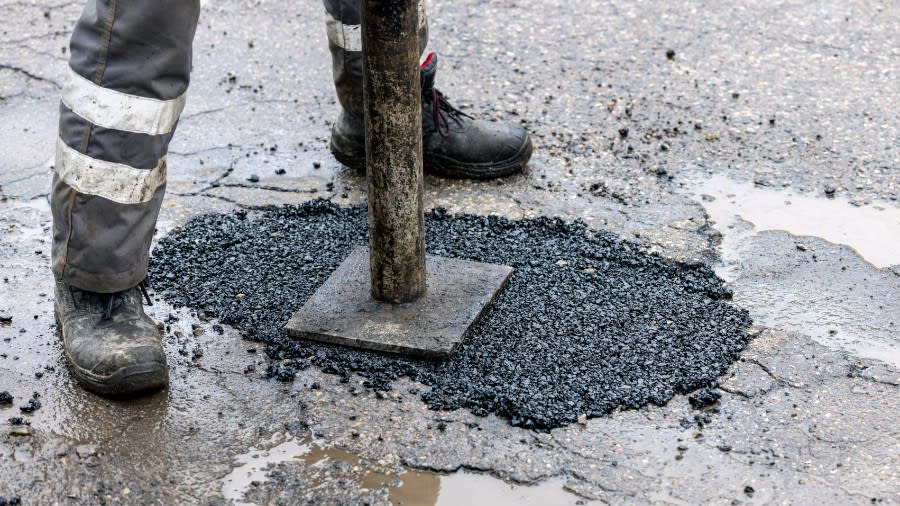
The issue has become so pressing that Chancellor Jeremy Hunt has this week earmarked an extra £200 million to help councils fund road repairs - money that arrives in an addition to the £1.125 billion that’s spent annually resurfacing our fractured local highways.
Announcing the plan ahead of the Spring Budget, Hunt said:
“'This cash will fix up to four million potholes, keeping the country moving and putting growth in the fast lane.”
While news of extra investment into pothole repairs is always a good thing, it’ll take some time for that cash injection to result in actual work crews on the ground.
So in the meantime, here’s our run-down of some of things you can do to avoid pothole-related vehicle damage:
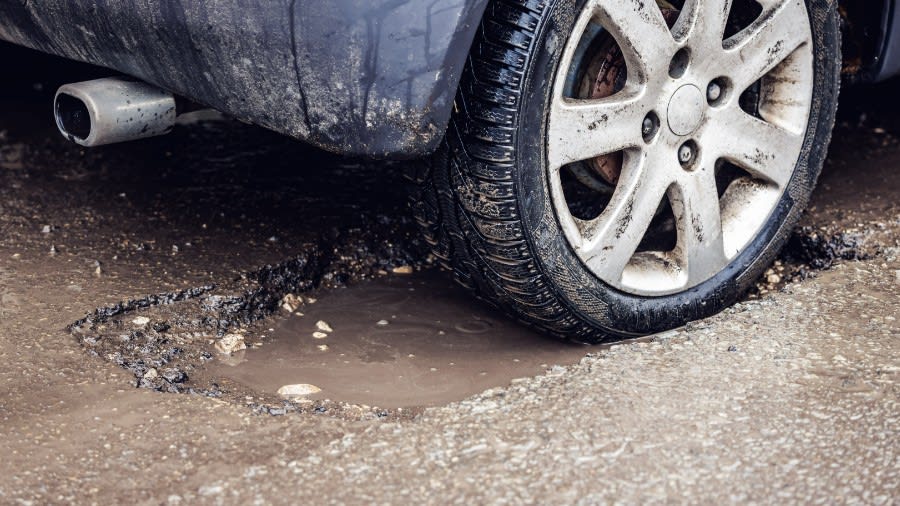
Braking technique
One key thing to remember is never to keep your foot on the brake as you actually hit the pothole - however much you might want to slow down.
You want to scrub off as much speed as you possibly can before hitting a pothole. But you should never slam on the brakes as you actually go over it. When you brake, your car nosedives forwards, compressing the suspension. If your car is already lurching forward as you hit a road crater, there’s little play left in the suspension, meaning it can no longer properly absorb an impact.
And that means you could actually increase the amount of pothole damage that occurs. You should instead come off the brakes, keep a firm grip of the wheel, and aim straight ahead - making sure you stop, when safe to do so, to check for any damage.
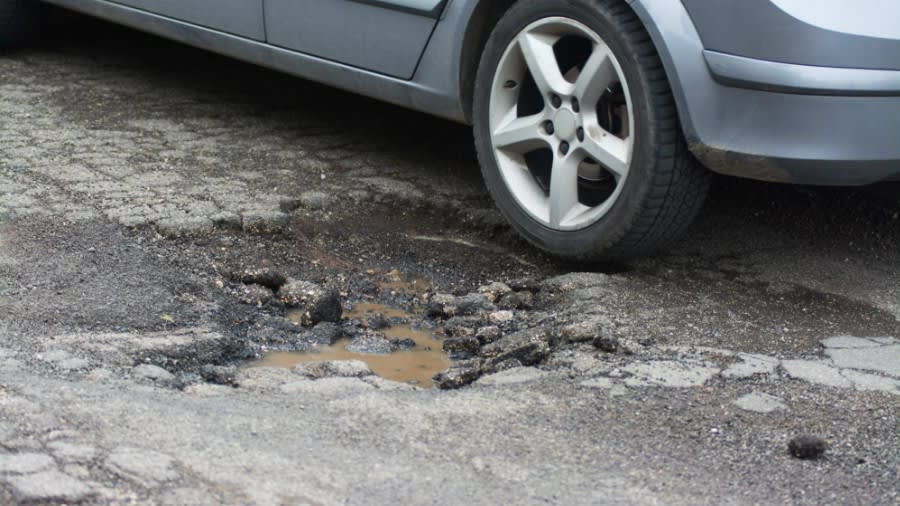
Don’t steer away from trouble
You should try to avoid turning the steering wheel while heading into a pothole, as this can again place extra stress on steering and suspension components. And the aim is to identify the threat before it’s too late, giving you time to slow down properly and straighten up - though that’s admittedly harder said than done in a real-world driving scenario.
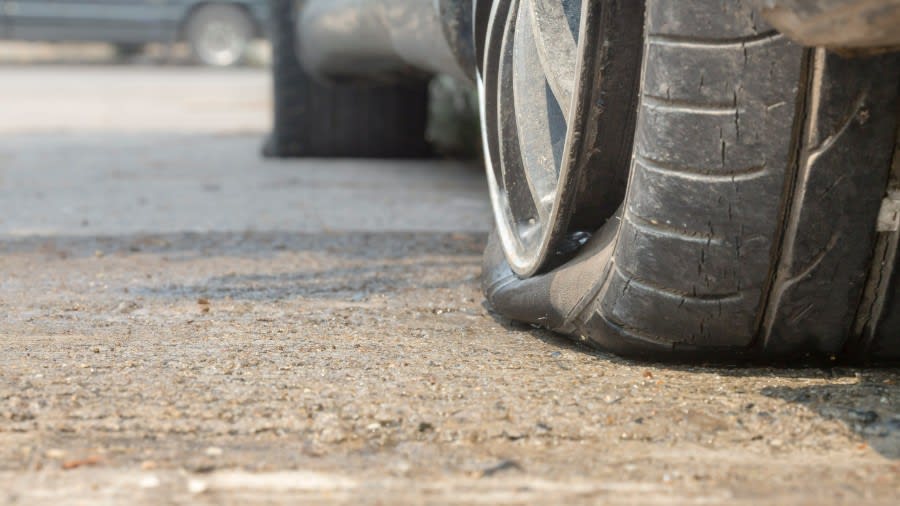
Proper inflation
Having properly inflated tyres - not too soft, not too hard - is one of the best ways to limit pothole damage. If your tyre pressure is too high, the impact of a pothole isn’t transferred properly through the wheel, and it’s more likely to damage your vehicle’s suspension, resulting in damaged track rod ends, broken coil springs or even bent suspension wishbones.
And remember that the ambient air temperature actually affects the pressure inside your tyres - with a potential swing of around 4 PSI when we go from cold to warm weather. It’s an important factor to be aware of as we go into spring.
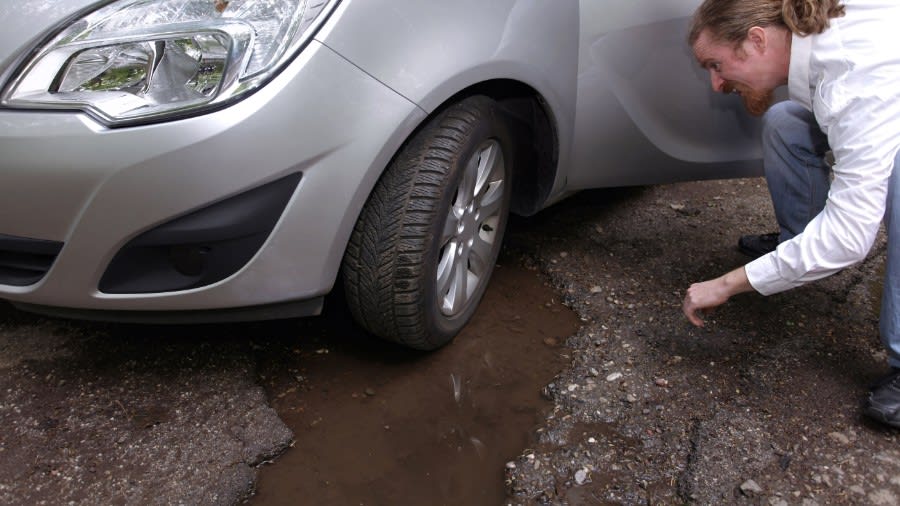
Experiment with your choice of tyres
There are pros and cons with any type of tyre and your choice will always come down to personal preference.
Run-flat tyres are really common with modern cars, and vehicles very often leave the factory shod in them.
Unlike typical tubeless tyres, run-flats have a reinforced sidewall that means you’re able to roll to the nearest garage in the event of a puncture, while you swerve the catastrophic ‘blow out’ effect seen with some traditional tyres.
There are, however, some motorists who report that because run-flats have a stiffer ride quality, they can be more of a headache on potholed roads - as they can transfer some of the shock of a bump through the rim of the wheel itself, rather than letting the rubber cushion the blow.
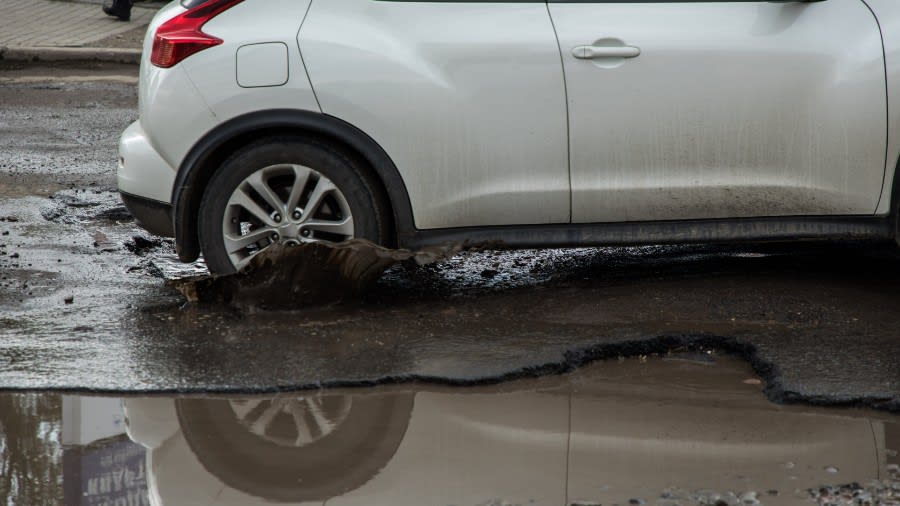
Again, the experience will vary from person to person, depending on what vehicle they drive, and some motorists love the safety reassurances that run-flats bring.
But if you are looking to smooth-out the lumps and bumps on your daily commute, and your tyres are nearing the end of their life, it might be worth experimenting with a tubeless set-up and moving away from run-flats. It might just save you from another year of rattled teeth and expensive repair bills.
Remember, though, that if you lease a vehicle, the type of tyre fitted when the vehicle is delivered to you must be the same as when you give it back. So, if your car was originally fitted with run-flats, you’ll need to return your vehicle wearing run-flats when the lease contract ends.

How can you tell if you have a buckled alloy from pothole damage?
If your steering wheel begins to judder, particularly when you’re driving at higher motorway speeds, that’s a very good sign you’ve buckled one, or even two, of your alloy wheels.
You might also notice a dangerous drop in steering performance and a generally unsettled ride quality.
The good news is that in most cases buckled alloy wheels can be repaired by specialists, who will charge around £75 per wheel. Even badly cracked alloys can be welded and repaired in some cases.
And in these times when UK roads are at their very worst, it’s good to be aware of the warning signs that you have experienced a buckled alloy.
You can read more motoring advice on the Select Car Leasing guides pages.
Enjoyed this? Read our latest news:
-
New electric Kia EV9 revealed in full
- Mercedes-Benz GLC Coupe goes hybrid
-
Top 5 cheap convertibles to lease this spring
-
McLaren P1 celebrates 10 year anniversary
- MG4 EV is ‘UK Car of the Year 2023’
Where To Next?
For all the latest reviews, advice and new car deals, sign up to our newsletter.
Looking for a great leasing deal? Check out our incredible range of special offers.
Read our latest reviews and find the right model for you.
Want to know more about leasing? Take a look at our comprehensive leasing guides.
Interested in everything motoring? Why not catch up on all the latest car leasing news.

















